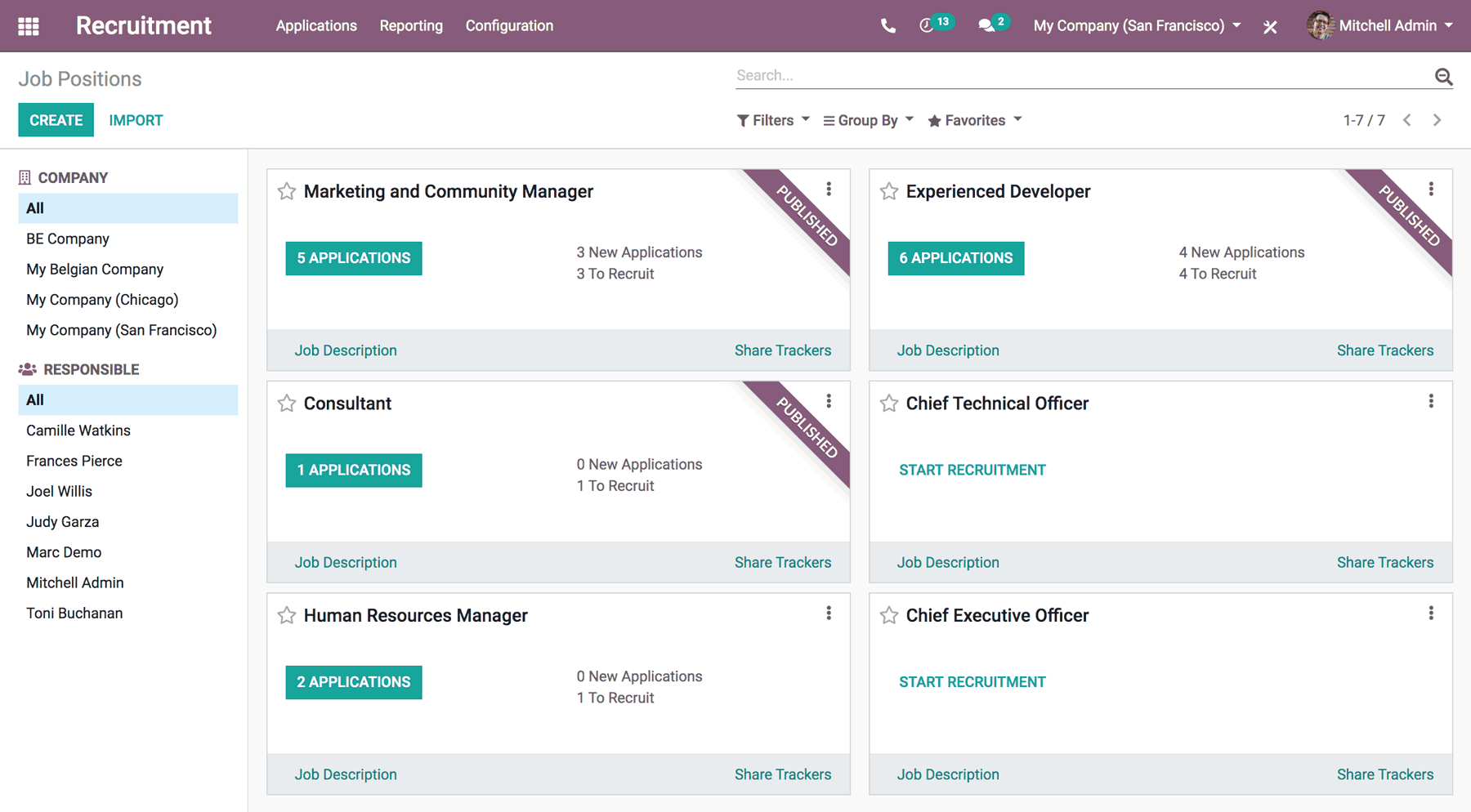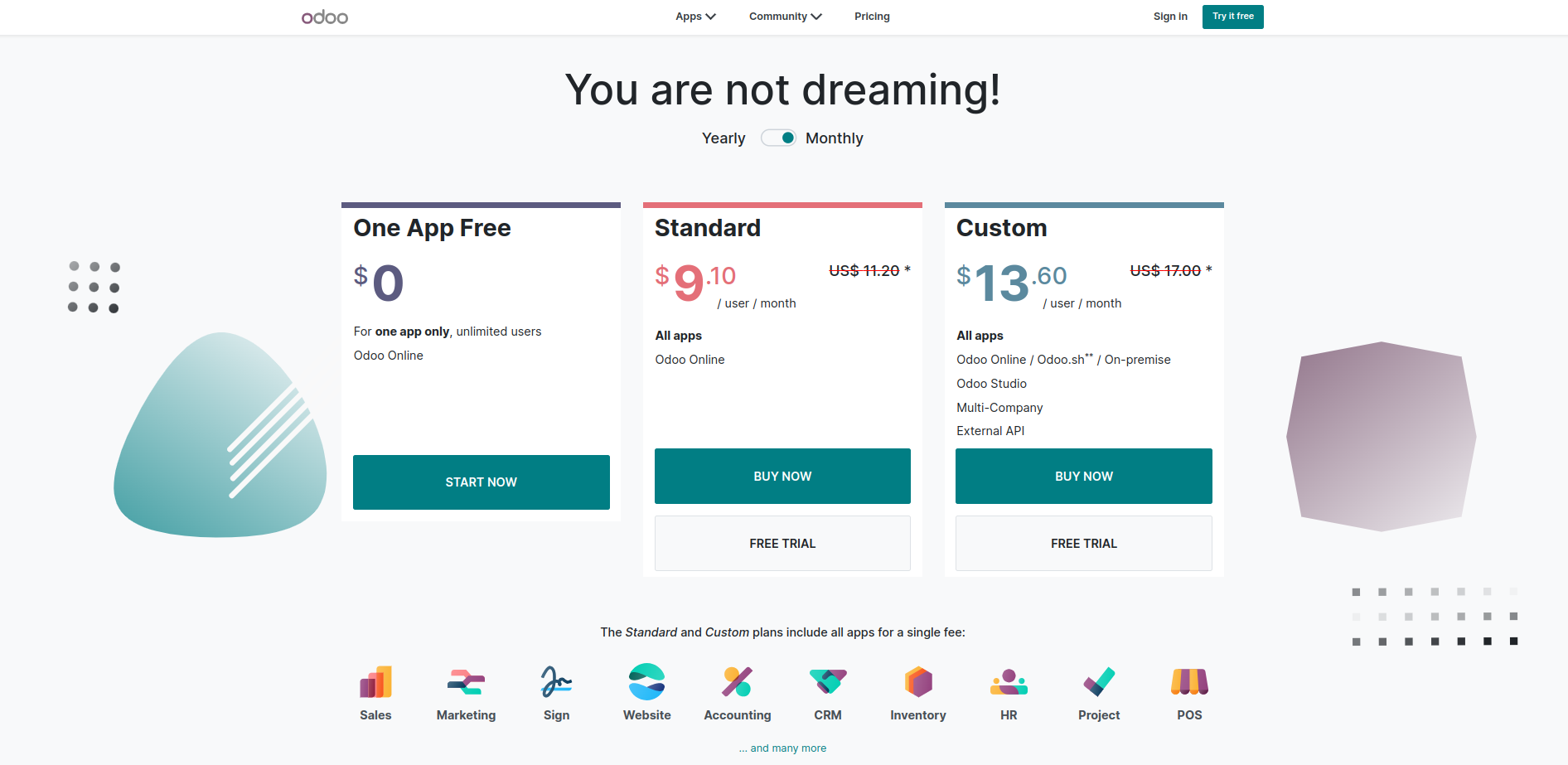We’ll explore why is Odoo open source, its benefits, and real-world impacts. We’ll also learn more about why you should consider it.
Odoo is a versatile Enterprise Resource Planning (ERP) software that streamlines business processes.
Odoo’s open-source nature is a game-changer in the ERP market, offering transparency, cost-effectiveness, and innovation.
Open-source software is distributed with its source code available so anyone can inspect, modify, and enhance it.
It contrasts with proprietary software, where the source code is unseen by users. There are many benefits to open-source software, including:
- Affordability: Open-source software is often free or very low-cost to use.
- Flexibility: Open-source software can be customized to meet the specific needs of users.
- Innovation: Open-source software is often more innovative than proprietary software because anyone can contribute to its development.
- Community support: Open-source software communities are often very active and supportive, and users can get help from other users and developers if they have problems.
Why is Odoo open source?
Odoo is open source for several reasons, including:
- To make it more affordable for businesses of all sizes. Odoo’s founders believe everyone should have access to powerful business software, regardless of their budget.
- To encourage customization and innovation. Odoo’s founders believe that the best way to create a great ERP system is to allow users and developers to customize it to their needs.
- To build a community around Odoo. Odoo’s founders believe a strong community is essential for long-term success.
- Transparency: Users can see how Odoo works and what data it is collecting. It builds trust and confidence.
- Security: Open source software is often more secure than proprietary software because anyone can review the code for vulnerabilities.
How open source Odoo is a game changer:
- Cost-effective solution: Odoo is open-source and free to use, so it’s an excellent option for businesses of all sizes, especially startups and small enterprises.
- Flexibility and customization: Open-source ERPs are customizable, unlike closed-source ERPs. Businesses can modify the code, integrate apps, and create modules to fit their needs.
- Flexibility: Its open-source nature allows businesses to customize and tailor the software to their needs. This flexibility has made Odoo popular in logistics and transportation.
- Promoting transparency and collaboration: Odoo’s open-source nature encourages transparency and collaboration, leading to better software.
- Scalability: Odoo’s open-source architecture allows businesses to scale their ERP system as they grow. They can add new modules, users, and features without the constraints of licensing fees.
- Integration capabilities: Odoo’s open-source nature allows it to integrate smoothly with other systems. It is crucial in today’s business environment, where software solutions must work together seamlessly.
- Community-driven development: Odoo’s open-source nature and vast community of developers make it robust, constantly evolving, and suitable for businesses of all sizes.
why is Odoo open source: How Odoo stands out from other ERP software;
- All-in-one solution: Odoo is an all-in-one business app suite for CRM, eCommerce, accounting, inventory, point of sale, project management, and more. It’s cost-effective and efficient.
- User-friendly interface: Odoo is known for its user-friendly and intuitive interface. The software’s clean design and straightforward navigation make it accessible to users across all levels of technical expertise.
- Integration capabilities: Odoo integrates with third-party apps to streamline operations, including e-commerce, payments, and marketing.
- Comprehensive functionality: Odoo is a cloud-based, open-source business management software with modules for sales, marketing, finance, HR, and CRM.
- Customization: Odoo’s open-source nature makes it customizable and scalable, so businesses can tailor it to their needs and grow with it.
Exploring Potential Hurdles in Open Source ERP:
- Complex customization:
Businesses often encounter complexity when customizing open-source ERP systems. They may be concerned about the cost and complexity associated with tailoring the software to meet their specific needs.
Additionally, extensive customization can pose challenges during software upgrades.
- Support uncertainty:
The absence of dedicated support teams for open-source software can be a concern. Businesses may need help determining where to turn for help in the event of technical issues or difficulties.
- Security apprehensions:
While open source emphasizes transparency, it may raise security concerns. Businesses may worry about potential vulnerabilities in the software, particularly if they lack the expertise to assess and secure the code effectively.
- Community dependency:
Relying on a community for support and development can be advantageous and challenging.
While the community-driven model encourages innovation, it may not guarantee immediate responses to specific business requirements or problems.
How Odoo addresses these challenges:
- Thorough documentation: Odoo’s comprehensive documentation simplifies customization by empowering users with best practices and reducing complexity.
- Commercial support services: Odoo’s Enterprise Edition offers commercial support services, including a dedicated support team for technical issues, upgrades, and troubleshooting.
- Security measures: Odoo emphasizes security. The community and businesses can enhance security with authentication, access controls, and encryption.
- Partner Network: Odoo maintains a network of certified partners who specialize in implementing and customizing the software. These partners offer tailored solutions, training, and ongoing support. This reduces dependence on the community for specific business needs.
- Enterprise Edition Benefits: Odoo Enterprise Edition has more features, stability, and support than Community Edition. Businesses with critical requirements or those seeking higher support can opt for Enterprise Edition.
Why adopt Odoo for your business?
- High Security: Open source ERPs are pretty secure, and the constant monitoring by developers helps to fix any security holes that may pop up quickly.
- User-friendly interface: Odoo’s user-friendly interface renders it accessible to businesses of all sizes, from small startups to large enterprises.
- Community-driven innovation: Odoo’s vibrant global community of developers and users drives frequent updates, new features, and continuous improvement.
- Scalability: Odoo is a scalable solution that can be used by businesses of all sizes. It can be deployed on-premises or in the cloud, and it can be scaled up or down as needed.
- Mobile accessibility: Odoo offers mobile apps for iOS and Android, allowing you to access critical ERP functions on the go. This feature is valuable for remote workers and field personnel.
- Real-time data access: Odoo provides real-time data access, enabling businesses to make quick decisions and improve productivity.
- Economical: Open source ERP like Odoo saves your business from paying a huge amount in the long run, unlike other commercial ERPs with expensive commercial databases and operating systems.
Conclusion: Why is Odoo open source;
Odoo is a versatile and customizable ERP software that can cater to the needs of businesses of all sizes and industries.
Its comprehensive features, cost-effectiveness, and user-friendly interface make it a viable option for businesses looking for a complete ERP solution.
Open-source ERP is on the rise due to its affordability, flexibility, and customization. The market is expected to grow as more businesses adopt it.
Odoo’s open-source nature revolutionizes ERP by offering cost-effective, adaptable solutions with strong support.
Consider open-source ERP for your business. Understand your requirements before choosing an implementation partner.





